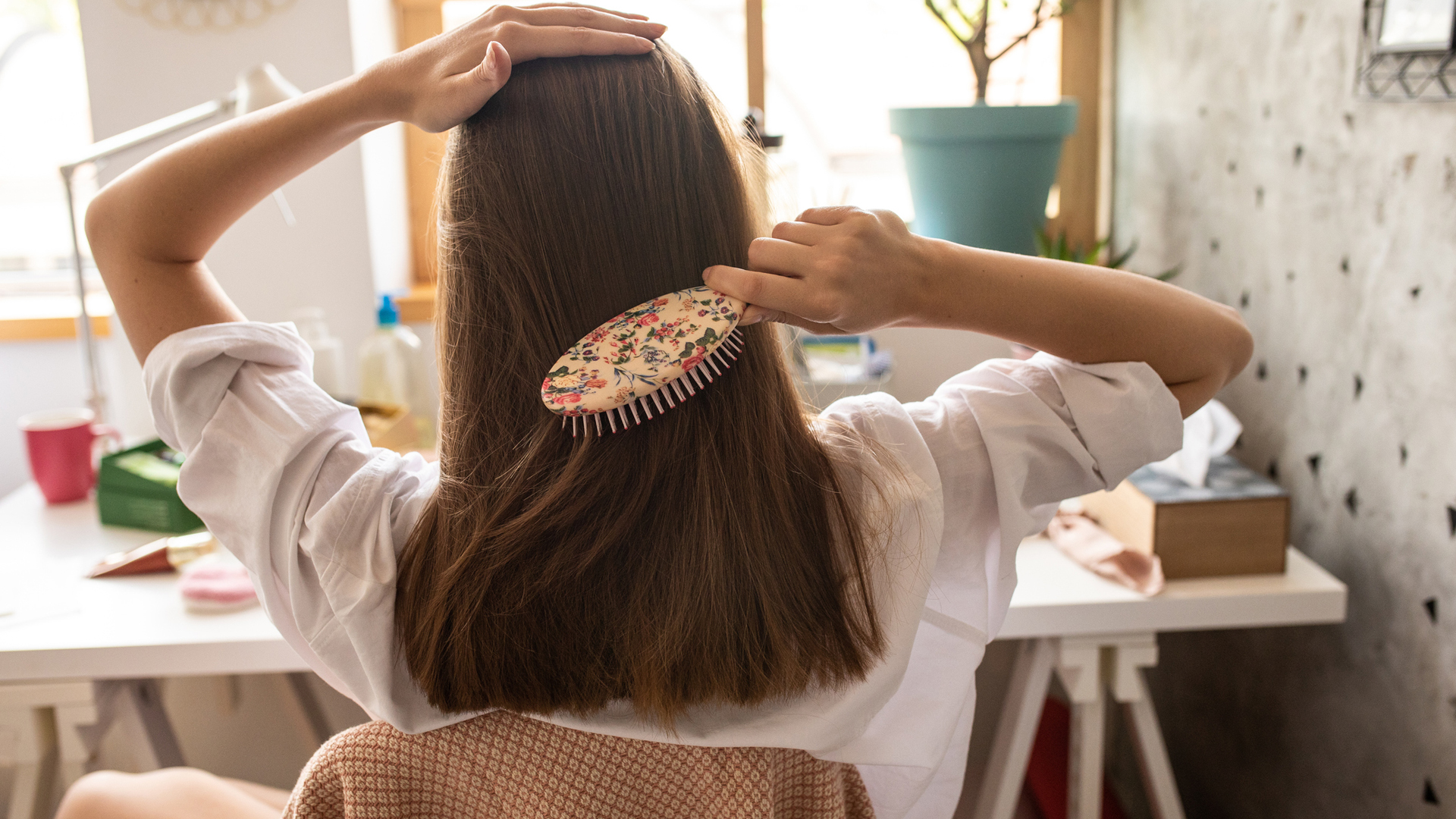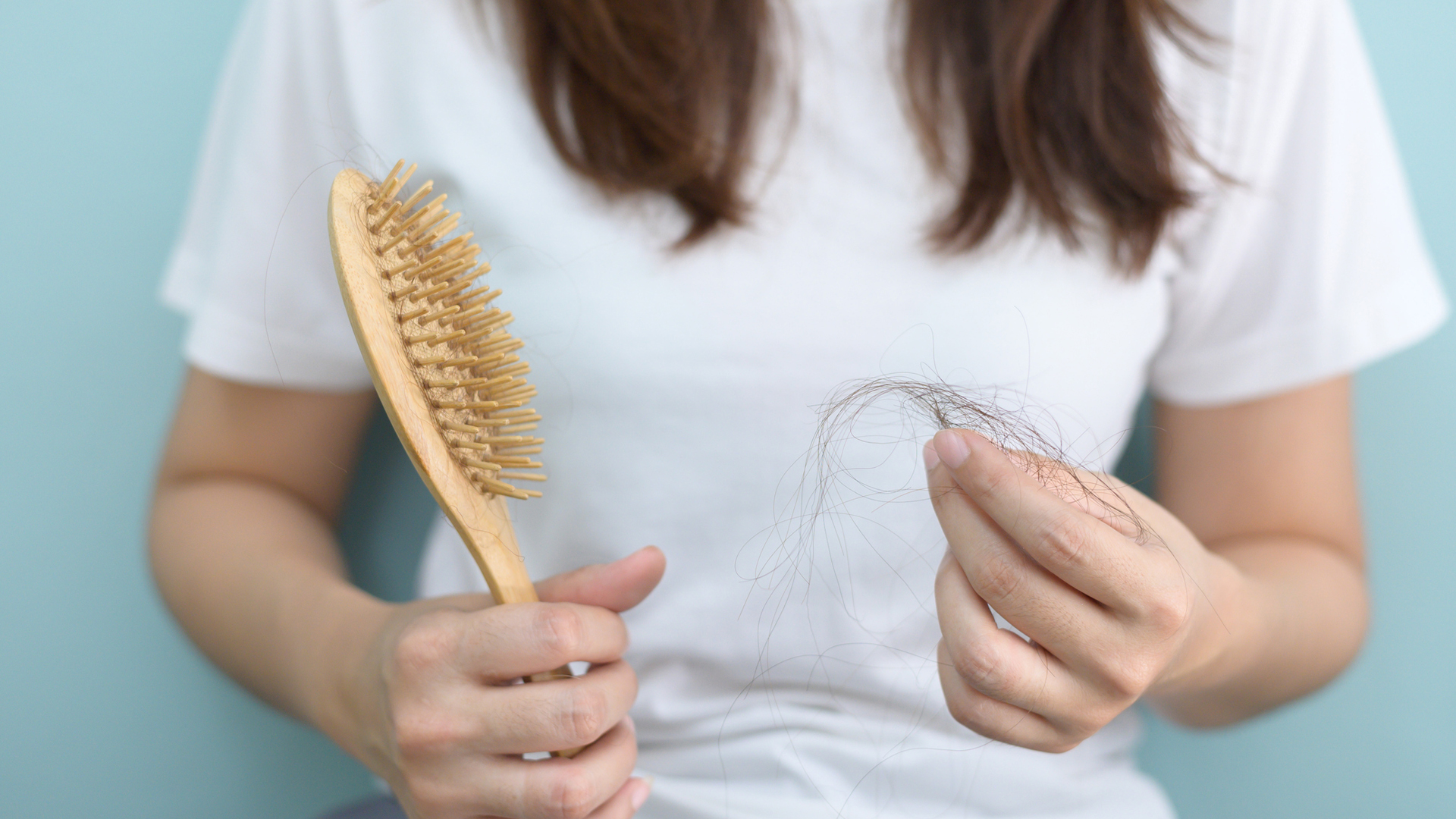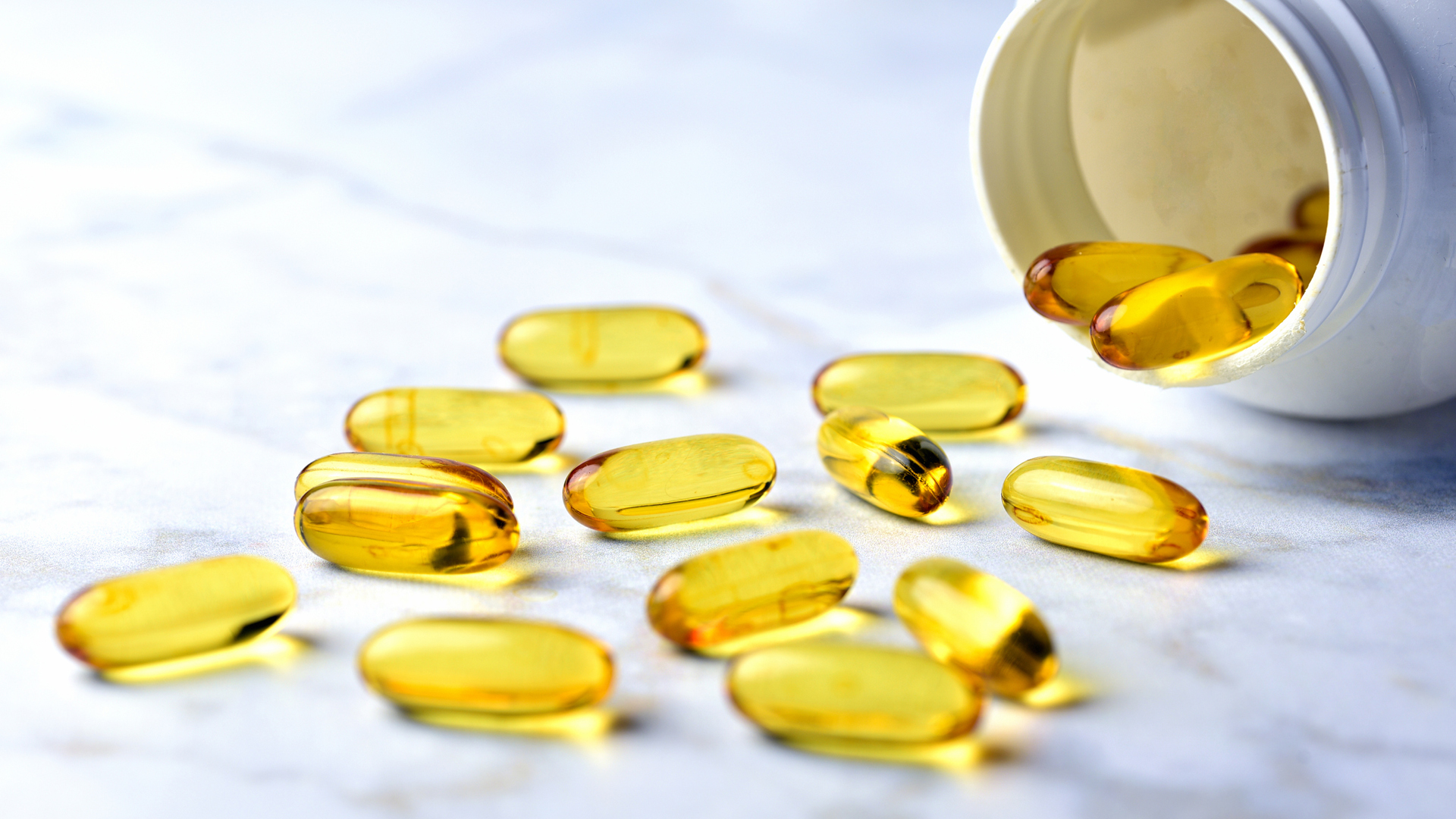Fish oil for hair growth: does it really work?
Do you want more lucious, shiny locks? We ask the experts whether taking fish oil for hair growth really works


Fish oil for hair growth: does it really work? While the jury is still out on whether fish oil or omega-3 fatty acids can stimulate hair to grow at a more rapid rate, there’s certainly a case to be made for the best fish oil supplements being beneficial for the hair and scalp.
Found mainly in oily fish such as tuna, mackerel, trout and salmon, omega-3 fatty acids are the building blocks of the body and have been linked to a host of health benefits, including better heart and brain health, higher immunity and even improved sleep. In fact, some studies have found that eating oily fish is as good for you as quitting smoking when it comes to increasing life expectancy.
The American Heart Association recommends that we should eat at least two portions of fish a week in order to get these restorative omega-3 fatty acids. The body can’t produce them so we have to get them from our diet. If you’re not a fan of fish, or are vegetarian or vegan, you can top up your omega-3s in tablet form.
So how does this all relate to hair? Well, some studies have shown a connection between fish oils and hair growth, and in this article we speak to the experts to break down the evidence.
What is fish oil?
Fish oil is extracted from oily fish like tuna, salmon and mackerel and it’s a popular supplement that is rich in health-boosting omega-3s, particularly DHA and EPA.
Registered nutritionist Ellie Busby, who specializes in nutrition for hair loss, says: “The fish don't actually produce the omega-3 themselves though. They collect it from the algae they eat, or by eating smaller fish, which have eaten the algae.
“Fish oils can also contain toxins like mercury, which build up in the fat stores of oily fish, so algae oil may be better than fish oil to get your omega-3 from a more sustainable, toxin-free source, a study in Bentham Science found.”
Start your week with achievable workout ideas, health tips and wellbeing advice in your inbox.
The benefits of fish oil are many, with one study published in Clinical Nutrition ESPEN having found that omega-3 could be the key to lean muscle for seniors. Other research published in Nutrients found that fish oil or omega-3s could improve sleep and there is emerging evidence that it may also assist with weight loss.
What causes hair loss?
Anyone can suffer from hair loss, but it tends to be more common in men. It can be hereditary, down to hormonal changes, stress, medical conditions or just a normal part of getting older.
“Male-pattern baldness is strongly genetic, while the cause of female hair loss is less clear. Patchy hair loss and generally thinning hair can be caused by nutrient deficiencies, hormone imbalances, or even stress,” says Busby.
“Hormone imbalance is what can cause hair loss in conditions like Polycystic Ovary Syndrome (PCOS), where there is a build-up of androgens (the hormones that contribute to growth and reproduction in both men and women). Certain medications can cause hair loss too, like chemotherapy. One patchy type of hair loss, called Alopecia areata, is autoimmune.”

Functional medicine practitioner Danny Ly reveals some more conditions that could cause hair loss, including:
- Stress: “This can impact both men and women. Excess cortisol is produced which is the stress hormone, this has been linked to hair loss but this type of hair loss is temporary and most people notice hair growing back within three to six months after their stressful event has ended.”
- Traction Alopecia: “This happens when we wear our hair in a tight pony tail continuously which causes trauma to the scalp.”
- Polycystic Ovary Syndrome (PCOS): “An endocrine disorder that can cause excess androgens which leads to male pattern hair loss.”
- Pregnancy: “It is common for women to notice hair loss post-pregnancy but this is usually because women produce more estrogen during pregnancy (so their hair grows more) and when the estrogen drops after giving birth, women notice some hair loss but this is usually the extra hair that grew during pregnancy instead of ‘real’ hair loss.”
- Menopause: Does menopause cause hair loss? It appears so. “A lowered production of oestrogen during menopause can lead to hair loss," says Ly.
“Another factor that can impact both men and women is weight loss,” says Ly. “Like with stress, the hair loss is temporary but happens when someone loses weight due to restrictive dieting. Nutrient deficiency as well as stress has roles to play here. When embarking on a weight loss journey it is recommended that a person should look for a balanced diet with a mild calorie deficit so they are still taking in essential nutrients, which should help prevent hair loss.”
Does fish oil help with hair growth?
So what can we do about hair loss, or boosting hair growth, and is fish oil the answer?
Yannis Giantzides from Harley Street Hair Transplant Clinics, says: “Many people look to supplement their diets to either prevent hair loss or promote growth, and omega-3s found in fish oil can help to provide nutrients to both the skin on the scalp and hair follicles, making for healthier hair and scalp. They can also improve circulation which can perhaps stimulate more growth.”
But our experts agree that more research is needed into the clinical benefits of fish oil for hair growth. Ellie says that in many studies the fish oil was taken with other supplements or dietary advice. “So it’s hard to know whether it's the omega-3 working or something else.”
However, she says: “There's one case study of a boy with autoimmune hair loss who was in complete remission after five months of a diet and supplement regimen based on unrefined foods, rich in vitamins A and D, zinc, and supplemented with a multi-nutrient, zinc sulfate, and fish oil with vitamin D.”

Research in the Journal of Cosmetic Dermatology also found that women with female-pattern hair loss who took fish oil, omega-6 and antioxidants for six months had thicker hair. This is thought to be because fish oil benefits the hair follicles by redirecting blood flow there, leading to an increased supply of nutrients – which in turn can promote hair growth and density.
Ly adds: “A study published in the International Journal of Molecular Sciences showed that mackerel-derived fermented fish oil could promote hair growth by increasing dermal papilla cell proliferation - cells in hair follicles.”
Another research project published in Cureus looked at using a wholefood diet and supplemental nutrients for alopecia areata saw a complete remission after five months when fish oil was administered with zinc, vitamin A and vitamin D.
“Currently, the exact mechanism of how fish oils and omega 3 could improve hair health are unknown,” says Ly. “However, it is plausible to say that this could be achieved by reducing inflammation in the body, through lowering inflammatory cytokines like interleukin-6 and TNF-a, and C-reactive protein, to achieve a general lowered inflammatory state.
“It is also likely that omega-3s can help to lower testosterone in females with PCOS, which hair loss is a symptom. An Iranian Journal of Reproductive Medicine study showed that taking 3g of omega-3 daily for eight weeks lowered testosterone. Hair loss was not measured however.”
For general hair thinning and hair growth, metal toxicity can be an issue, adds Busby, because your body tries to get rid of toxins by shedding it out in your hair. For example, selenium toxicity can cause hair loss. “There's evidence for other nutrients improving hair growth, including zinc, B vitamins and iron,” she says.
Giantzides adds: “While there are great benefits for the whole body and your hair when including essential omega-3 fatty acids in your diet, if you suffer sudden and continued hair loss or notice a thinning of the hair, you should also seek medical advice and support.”
Maddy Biddulph is a journalist specializing in fitness, health and wellbeing content, with 26 years in consumer media working as a writer and editor for some of the bestselling newspapers, magazines and websites in the US and UK, including Marie Claire, The Sunday Times and Women’s Health UK.
She is a CIMPSA-certified PT and works one-on-one with clients, as well as running Circuits Club classes which mixes cardio and strength training and chair-based exercise classes for seniors.
